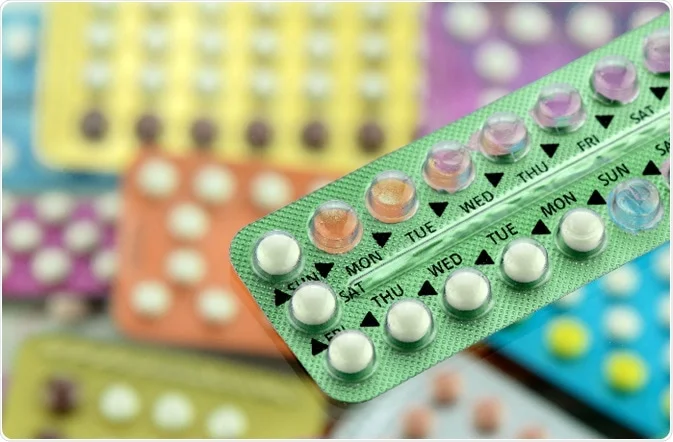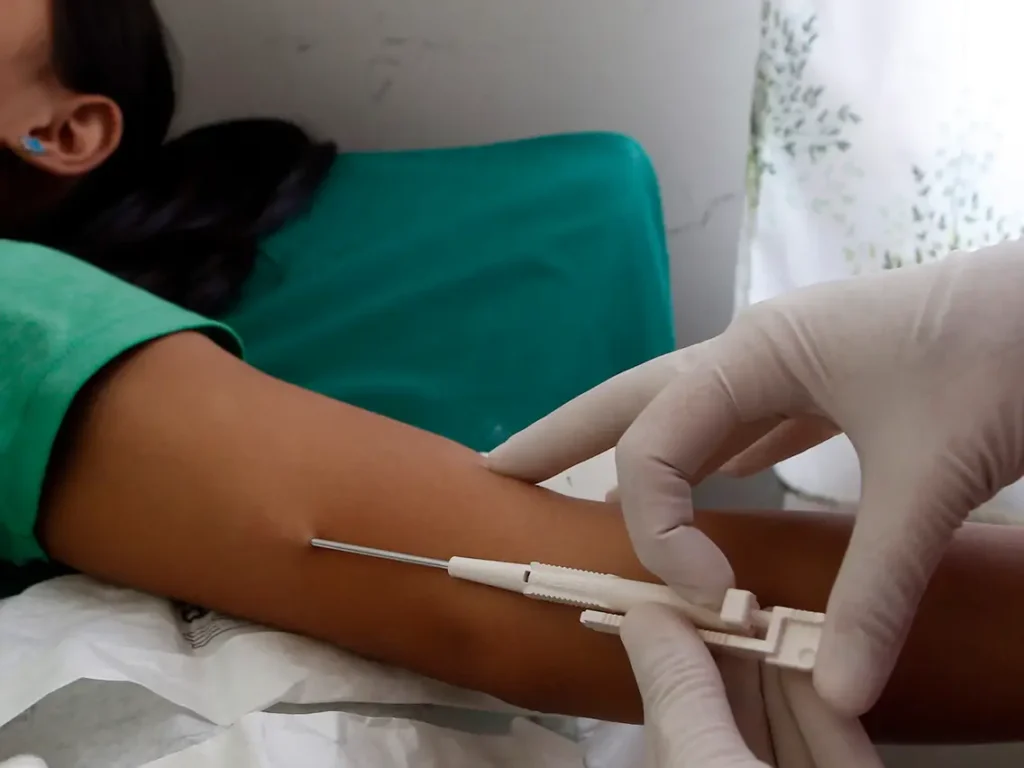When a couple is ready to start a family, one of the first steps many women take is to stop using birth control. Naturally, the question arises: “How long will it take to conceive after stopping birth control?”.
The answer varies depending on several factors, including the type of birth control used, individual health, and reproductive age.
In this article, we will explore what to expect after discontinuing different birth control methods, common timelines for conception, and tips to improve fertility.
Types of Birth Control and How They Affect Conception
Different birth control methods influence how quickly your body returns to its natural fertility cycle. While some methods allow you to conceive almost immediately, others may take longer for your body to adjust.
Here’s a breakdown of various birth control types and their effects on fertility:
1. Hormonal Birth Control Pills
Hormonal birth control pills are one of the most popular methods. They work by preventing ovulation, changing the cervical mucus to make it difficult for sperm to reach the egg, and thinning the lining of the uterus to prevent implantation.
Recommended: Does Testosterone Replacement Cause Infertility?
How Long Does It Take to Conceive After Stopping the Pill?
For most women, fertility resumes quickly after stopping the pill. You can ovulate and potentially conceive as soon as two weeks after your last pill. However, it may take a few months for your menstrual cycles to normalize, especially if you’ve been using the pill for an extended period.
Research shows that around 80% of women will conceive within a year of discontinuing the pill.

2. IUD (Intrauterine Device)
There are two types of IUDs: hormonal and copper. Hormonal IUDs release small amounts of progestin to prevent pregnancy, while copper IUDs create an environment in the uterus that is toxic to sperm.
How Long Does It Take to Conceive After Removing an IUD?
After IUD removal, whether hormonal or copper, many women regain fertility almost immediately. Ovulation can occur as early as two weeks after removal, and conception is possible soon after that. Most women conceive within six months to a year of IUD removal.
Recommended: Top 5 Foods To Avoid While Taking Letrozole For Fertility
3. Depo-Provera Shot (The Birth Control Shot)
Depo-Provera is a contraceptive injection that contains progestin. It’s designed to prevent pregnancy for three months at a time by stopping ovulation.
How Long Does It Take to Conceive After Stopping Depo-Provera?
The Depo shot can take longer to leave your system compared to other forms of birth control. While some women may resume ovulation within a few months, it can take up to a year or more for fertility to fully return.
Recommended: 8 Common Causes Of Erectile Dysfunction In Young Men
Studies suggest that 50% of women conceive within 10 months of stopping Depo-Provera, but for others, it may take up to 18 months.
4. Birth Control Implants (e.g., Nexplanon)
Birth control implants release progestin to prevent pregnancy and are inserted under the skin of your upper arm. They provide long-term protection but are reversible once removed.
How Long Does It Take to Conceive After Removing the Implant?
After the implant is removed, fertility typically returns quickly, often within a month. Ovulation can occur within three to four weeks, and many women conceive within six months to a year after removal.
Recommended: Emergency Contraceptives in Nigeria: A Comprehensive Guide

5. Birth Control Patches and Rings
Patches and vaginal rings (like NuvaRing) release estrogen and progestin to prevent ovulation.
How Long Does It Take to Conceive After Stopping the Patch or Ring?
Like birth control pills, the patch and ring allow fertility to return relatively quickly after discontinuation. Most women begin ovulating within one to three months, and pregnancy is possible within the first few cycles.
Factors That Affect How Long It Takes to Conceive
While the type of birth control plays a significant role, there are several other factors that can influence how long it takes to conceive:
1. Age
Age is one of the most important factors in fertility. Women in their 20s and early 30s typically have an easier time conceiving than women over 35. As you age, the quantity and quality of your eggs decline, which can make conception more challenging.
Recommended: How To Use Neem Oil As a Contraceptive
2. Menstrual Cycle Regularity
After stopping birth control, your menstrual cycles may be irregular for a few months as your body readjusts. Irregular ovulation can make it harder to time intercourse and conceive. Patience is key during this time, as it may take your body several months to return to a regular cycle.
3. Overall Health
Health factors such as weight, nutrition, and lifestyle habits can impact your fertility. Women who are underweight, overweight, or have underlying health conditions (like PCOS or thyroid issues) may take longer to conceive.
It’s important to maintain a healthy lifestyle, including regular exercise, a balanced diet, and reducing stress, to improve your chances of conceiving.
Recommended: What Happens If You Ovulate Before Trigger Shot?
4. Partner’s Fertility
Male fertility is just as important as female fertility. A man’s sperm count, motility, and overall reproductive health can significantly affect the chances of conception. If you’re struggling to conceive after stopping birth control, it’s wise to consider both partners’ reproductive health.

Common Timelines for Conception After Birth Control
While some women conceive within the first month of stopping birth control, others may take longer. Below is a general timeline of what to expect:
- Within 3 Months: Many women who stop short-acting forms of birth control, such as the pill, patch, or ring, will ovulate and conceive within the first three months.
- Within 6 to 12 Months: Women who have used long-acting birth control methods, like IUDs and implants, generally conceive within this period. Even after stopping the Depo shot, half of women are pregnant within 10 months, though it may take up to a year or more for others.
- 12 Months or More: If you’re under 35 and haven’t conceived after a year of trying, or over 35 and haven’t conceived after six months, it may be time to consult a fertility specialist. Both male and female factors should be assessed to identify any potential fertility issues.
Recommended: Does Female Masturbation Affect Ovulation?
Tips to Improve Fertility After Stopping Birth Control
Whether you’ve just stopped birth control or have been trying to conceive for a while, there are steps you can take to boost your fertility:
1. Track Your Ovulation
Using ovulation predictor kits or tracking your basal body temperature can help you identify when you’re most fertile. Having intercourse during your fertile window can significantly increase your chances of conceiving.
2. Adopt a Fertility-Boosting Diet
Certain nutrients can improve your reproductive health. Focus on foods rich in folic acid, iron, omega-3 fatty acids, and antioxidants. These nutrients support hormone balance and egg quality, making it easier to conceive.
Recommended: Do Ovulation Tests Get Darker After 5 Minutes?
3. Reduce Stress
High levels of stress can interfere with ovulation and hormone production. Practices like yoga, meditation, and mindfulness can help manage stress and improve fertility.
4. Quit Smoking and Limit Alcohol
Smoking negatively impacts both male and female fertility by reducing egg quality and sperm count. Limiting alcohol intake can also improve your chances of conceiving.

When to See a Doctor
If you’ve been trying to conceive for a year without success (or six months if you’re over 35), it’s time to consult a doctor. A fertility specialist can run tests to identify potential issues and suggest treatment options. Early intervention can make a big difference in helping you achieve a healthy pregnancy.
Recommended: Top 10 Myths and Misconceptions of Family Planning
Conclusion
Conceiving after stopping birth control is a highly individual experience. While some women may get pregnant within the first month, others may take longer. Factors like the type of birth control, age, and overall health play significant roles.
By understanding what to expect and taking steps to support your fertility, you can increase your chances of conceiving. If you experience any delays, don’t hesitate to consult a healthcare provider to ensure everything is on track for your family planning journey.
